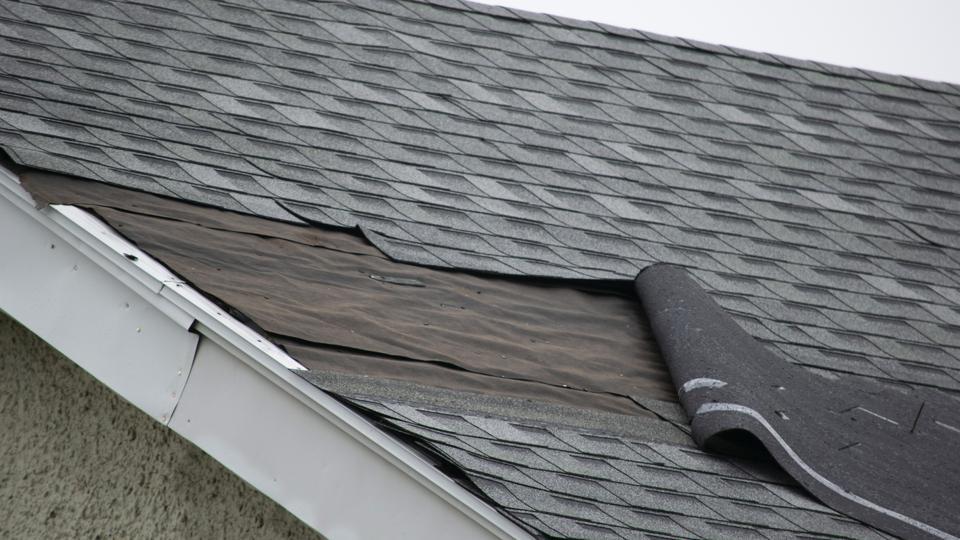Your house’s roof was designed to last ten years or longer. But extreme weather, falling trees, animal activities, and other environmental and external factors may lead to premature wear and tear, or damage.
Thus, roofing experts highly recommend regular roof maintenance—at least once every year, or more frequently for roofs over five years old.
In this article, you’ll learn about the top signs to look out for that tell you your roof needs repairing.
1. Leaks In Your Roof System
Water damage gradually results from water leaks brought about by rains or heavy snowfall. Check for water damage and if you find any signs, get in contact with professionals at Delta Home Construction They provide expert roof leak repair services.
Keep an eye out for signs of water damage in your home:
- Stains On The Walls and Ceiling: poor flashing installation, using low-quality metal flashing, or ice damming are common causes of stains on walls and the ceiling. If left untreated, water damage may pose a serious threat.
- Blistering Or Peeling Paint: Paint damage, such as blistering or peeling paint, is a manifestation of roof problems because of moisture buildup caused by poor attic ventilation.
- Shiners: Nails look shiny and white because of frost, and you can spot shiners if you climb up into the attic on a chilly night. The frost on the nails melt and drip as the attic heats up during the day, causing leaks. Clipping the nail using side-cutting pliers can help resolve this issue.
2. Dirty Or Dark Areas On the Roof
Dirt and dark areas usually appear on the roof when granules fall off shingles, which means that your shingles have aged, warranting replacement. Dark patches signal moss growth of algae on the roof, wherein their quick removal is advised. This is because moss growth can contribute significantly to shingle wear as it causes frost damage to the mineral coating of most shingles.
3. Holes And Punctures
Local wildlife could damage your roof shingles, such as the woodpecker. They scrape and puncture roof materials—creating sizable holes in your roof. Holes and punctures expose your house’s inner structure, causing moisture buildup, leaks, and rot.
Large holes and punctures should be fixed, and missing shingles should be replaced immediately. Don’t compromise on your family’s safety with a failing roofing system. Seeking professional help will ensure excellent repairs and replacement of roof parts, so you can keep your roof in good condition for many years.
4. Roof Shrinkage
A special membrane coats all your roofing materials. Sometimes, this membrane can shorten or shrink, and this is called ‘roof shrinkage.’ The coat protects your roof from extreme temperature changes and other climatic conditions. Once your roof shrinks, it becomes exposed to various elements, resulting in roof damage.
5. Splitting
A top common roof problem is splitting. It’s caused by poor roof installation materials and extreme heat, resulting in a leaky roof. Splits in the roof enables water to find its way into your home.
You can identify these splits by examining your shingles for long cracks that run across their surfaces. If you notice this, it’s best to address the issue as soon as possible to avoid more costly damage repairs.

6. Sand Or Granules In Your Driveway
Gutters can help homeowners spot early roof issues. Damaged or old roof shingles lose their granule coverings, which wash into the gutters and your driveway. Call a professional roofer once you see these granules to protect your home.
7. Ice And Snow Damage
Ice and snow can wreak havoc on any roof over time because they melt, eventually seeping underneath the shingles. The ice underneath the roof pushes up against the shingles or flashing.
Sometimes, shingles and flashing can even be lifted, leaving gaps, allowing more ice or water to enter, and permanently damaging the roof and other structures of the house. Scheduling routine roof maintenance during spring and fall will help you prevent ice and snow damage. By doing so, you won’t be stuck or caught off-guard in a situation demanding emergency roof repair.
8. Aging Roof
The age of your roof affects your home insurance claim. So, it’s crucial to know the lifespan of your roof and when it needs replacement. Most roofs last 20 to 25 years. As your roof gets older or close to the end of its lifespan, it will show subtle signs such as curling, missing shingles, or dark or dirty areas on the roof.
A sagging roof is also a sign that your roof is weak and deteriorating. If you notice your roof is sagging, replace it immediately. Otherwise, it could collapse. Once you notice the subtle and obvious warning signs, set an inspection appointment to determine how much time you have before your roof needs replacing.
Conclusion
The top signs that your roof needs repair services include cracking, splitting, blistering, holes, and punctures in your roof. Also, signs of water damage caused by these structural damages include stains on the walls, floor, and ceiling. These problems must be addressed right away to ensure a longer lifespan for your entire roofing system and your family’s safety.


